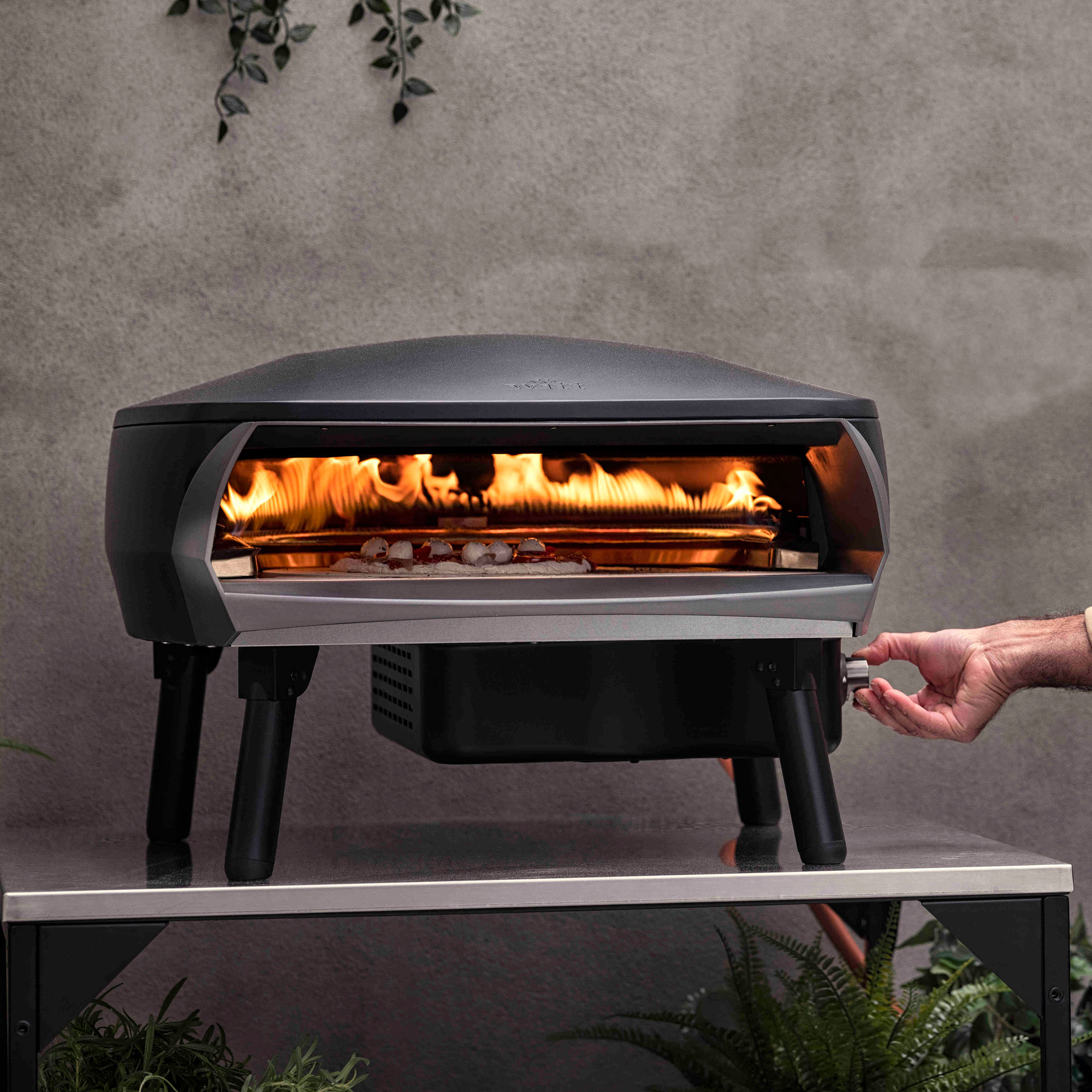
I’m no stranger to cooking outdoors. At the time of writing this, I currently have five barbecues (yes, you read that right) in my garden - two gas, two charcoal and one wood pellet; as well as two of the best pizza ovens, one of which happens to be the new Witt Rotante.
Pizza ovens are surfing a wave of popularity in the UK right now. Brands like Ooni and Gozney tend to be the most popular and have the widest ranges and fuel options, but there’s a whole host of other companies that produce pizza ovens that cook on gas, wood pellets and/or solid wood.
Back in frosty February, I was contacted by a new-to-the-UK company called Witt to see if I wanted to test out its new pizza oven. Witt makes two pizza ovens, one is the Fermo, the other is the Rotante. (FYI Fermo means stationary in Italian, Rotante - surprise surprise - means rotating).
Having used pizza ovens for nearly seven years, the fiddly part of rotating your pizza mid cook has always occasionally resulted in the odd burnt crust. The only tool that I swear by to solve this is the Roccbox turning peel by Gozney but at almost £50 it’s a lot to shell out for a bit of burnt crust.
Regardless, the idea of a pizza oven that does all that hard work for you definitely sounded intriguing so Witt sent me a Rotante oven to test.
Witt Rotante pizza oven product specs
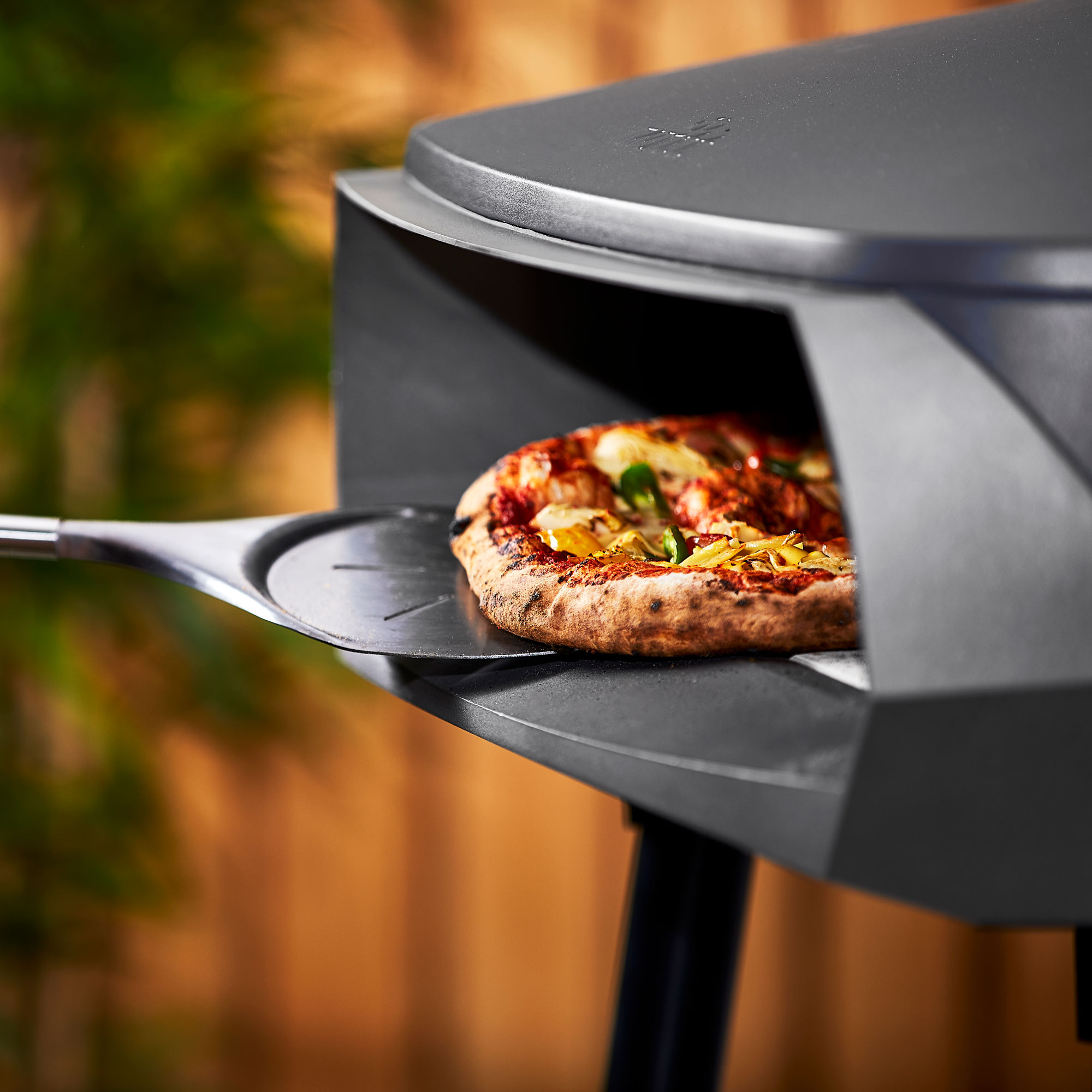
- Fuel: Gas
- Weight: 37.5kg
- Pizza size: 16 inch
- Preheat time: 15 mins
- Dimensions: H45 x W63 x D75cm
- Warranty: 12 months
- Accessories: None included
Who tested the Witt Rotante pizza oven?
Unboxing and setting up
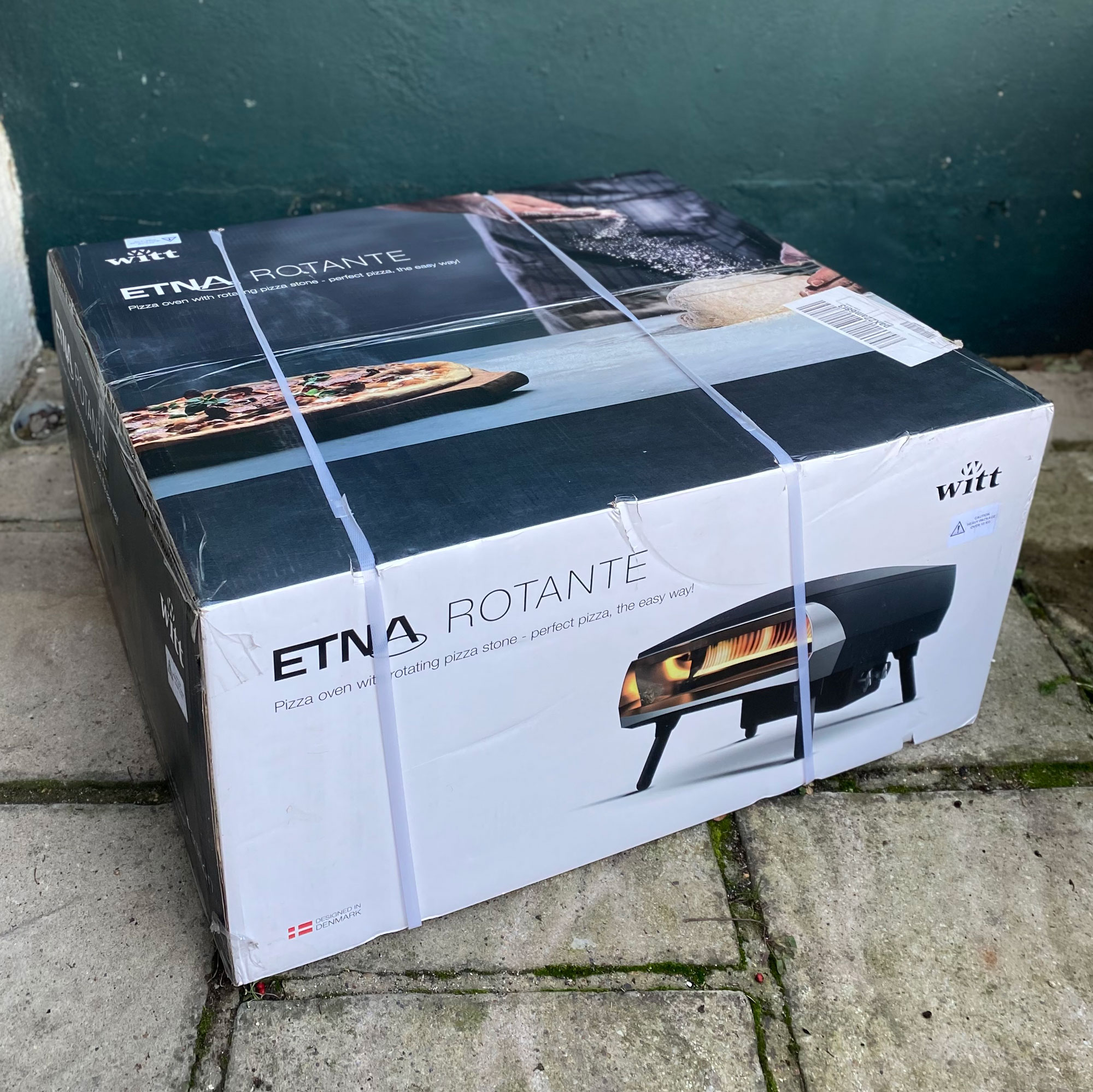
Thankfully, pizza ovens don’t tend to be the most complicated things to set up. Unlike barbecues, whose builds vary from the straightforward to requiring a degree in structural engineering, pizza ovens usually come fully formed, requiring minimal building skills. This too was the case with the smart Witt Rotante.
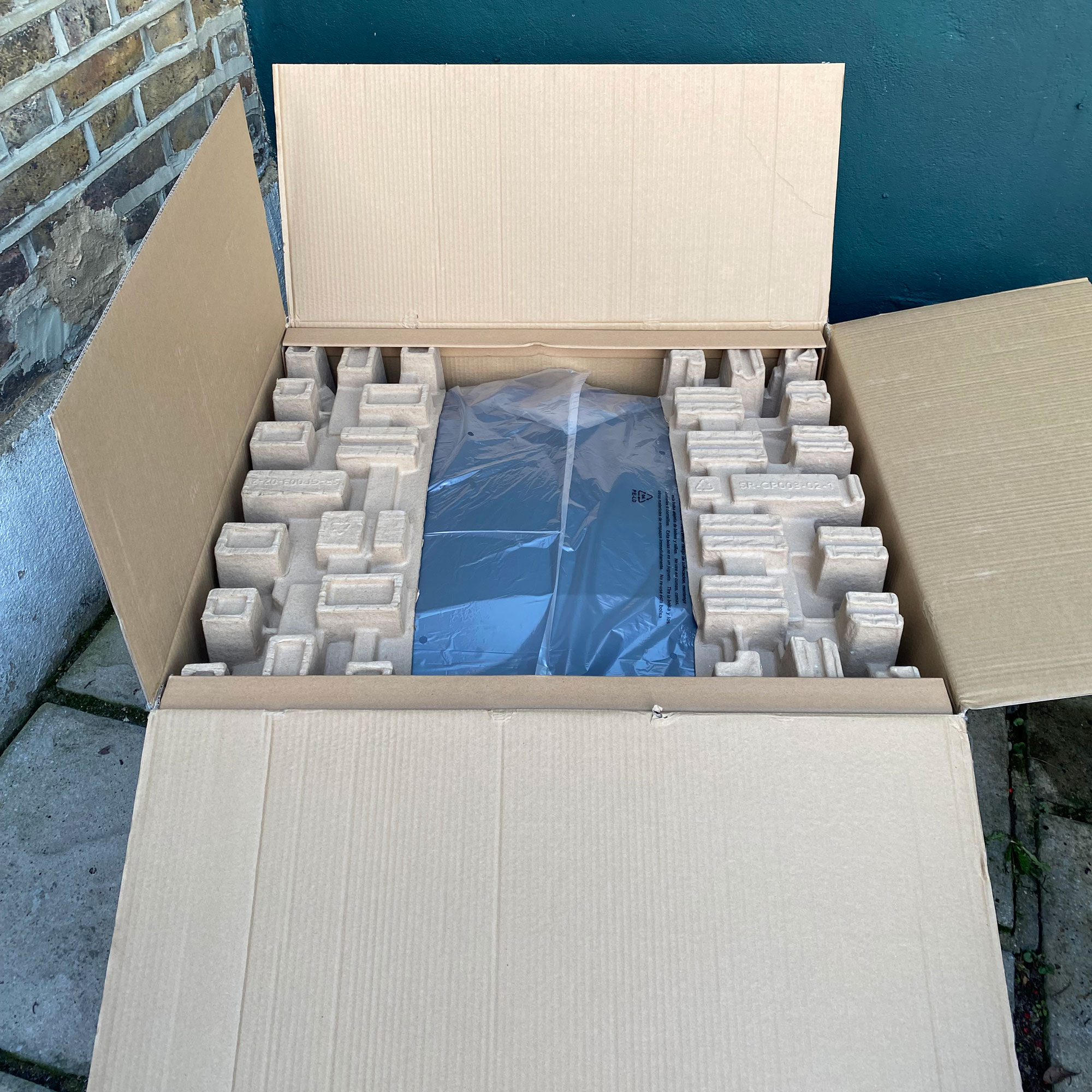
You’ll need two people to lift it out of the box - as it can handle 16 inch pizzas, it’s a fairly big beast. The box it comes in measures H41 x W75 x D85cm. Once out, you’ll need to place it on a surface that measures at least L65 x D70cm. Packaging is mainly cardboard, with some thick spongy plastic to cushion the pizza stones.
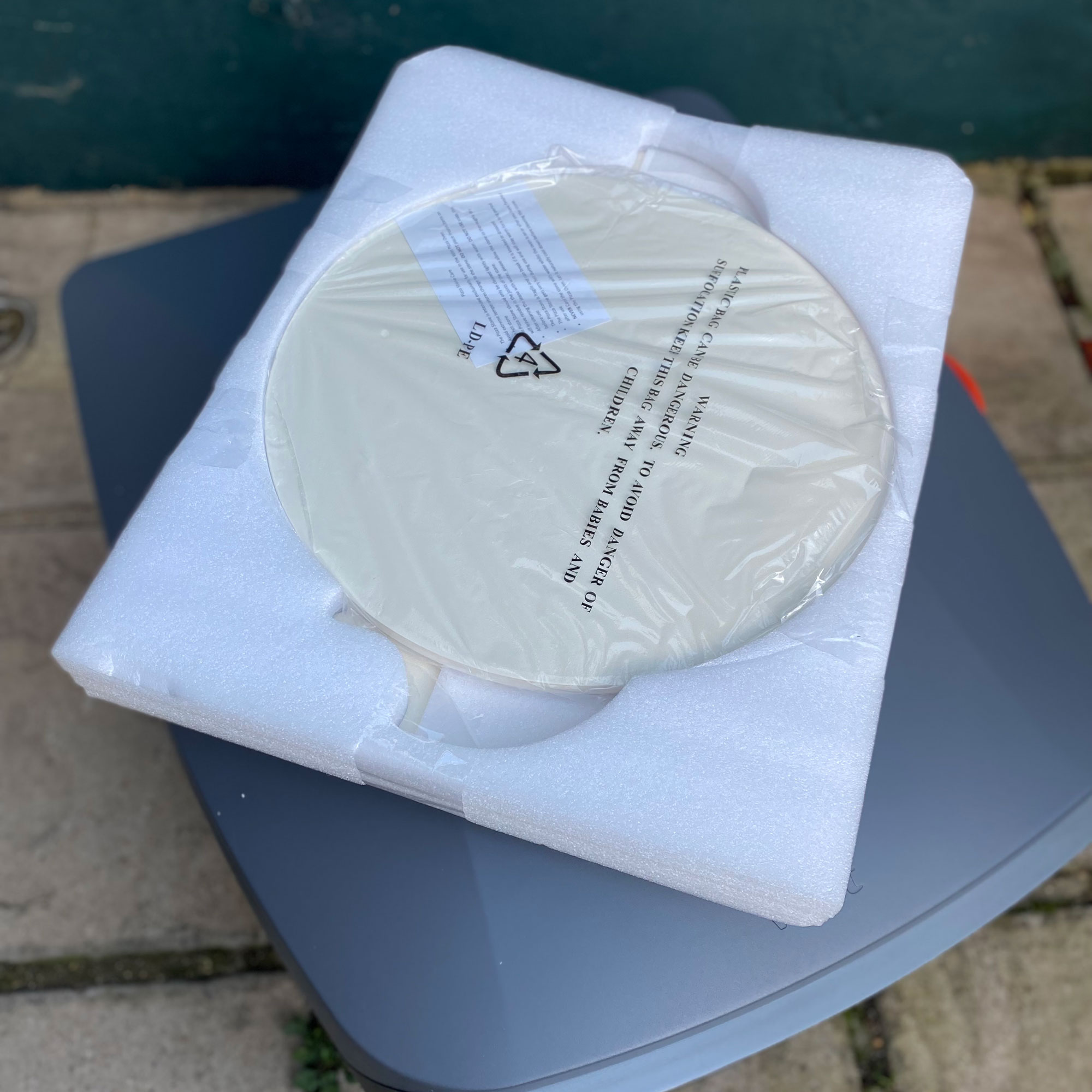
Assembly, as mentioned, is minimal. You need to fit a AAA battery in the ignition. In order to power the rotating base, you can either plug it into an external plug socket with the accompanying lead or install 4 AA batteries into the base of the oven.
The legs - made from aluminium with rubber feet - fold out from the base (these can be folded inwards again after use to make storage easier).
It’s very slick looking - one would expect that from the Danes - I was sent the graphite model, but there’s a juicy looking orange shade as well as classic black and off-white options, too.
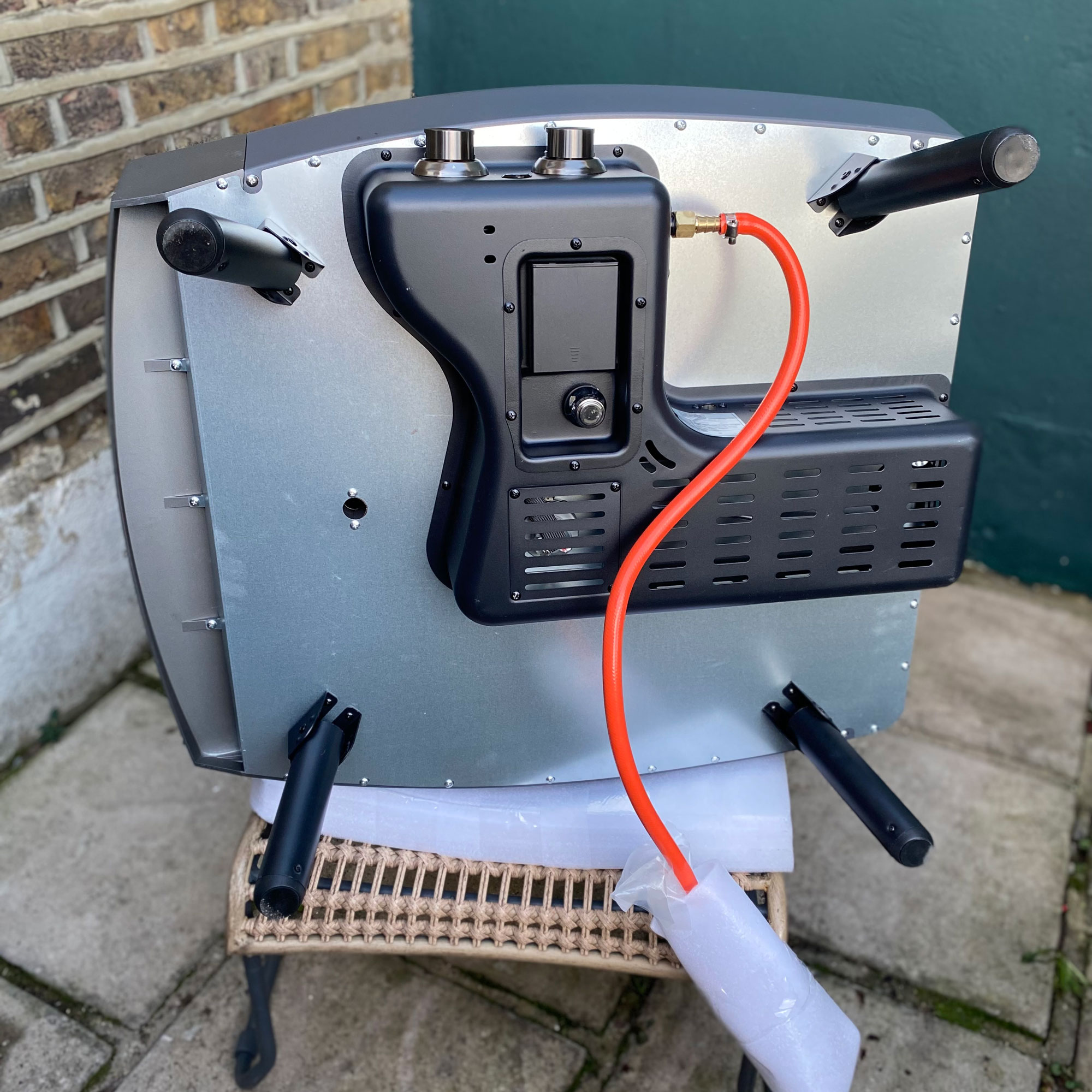
The controls are on the right hand side when you’re facing it and that’s where the gas pipe is connected, too. Next, I slid the main off-white pizza stone into the oven onto the rotating turntable, and finally placed the matching front stone rim in place.
The Rotante doesn’t come with any accessories but you can buy a Witt pizza cover for £45, as well as a variety of pizza peels, cutters and so on.
Getting started
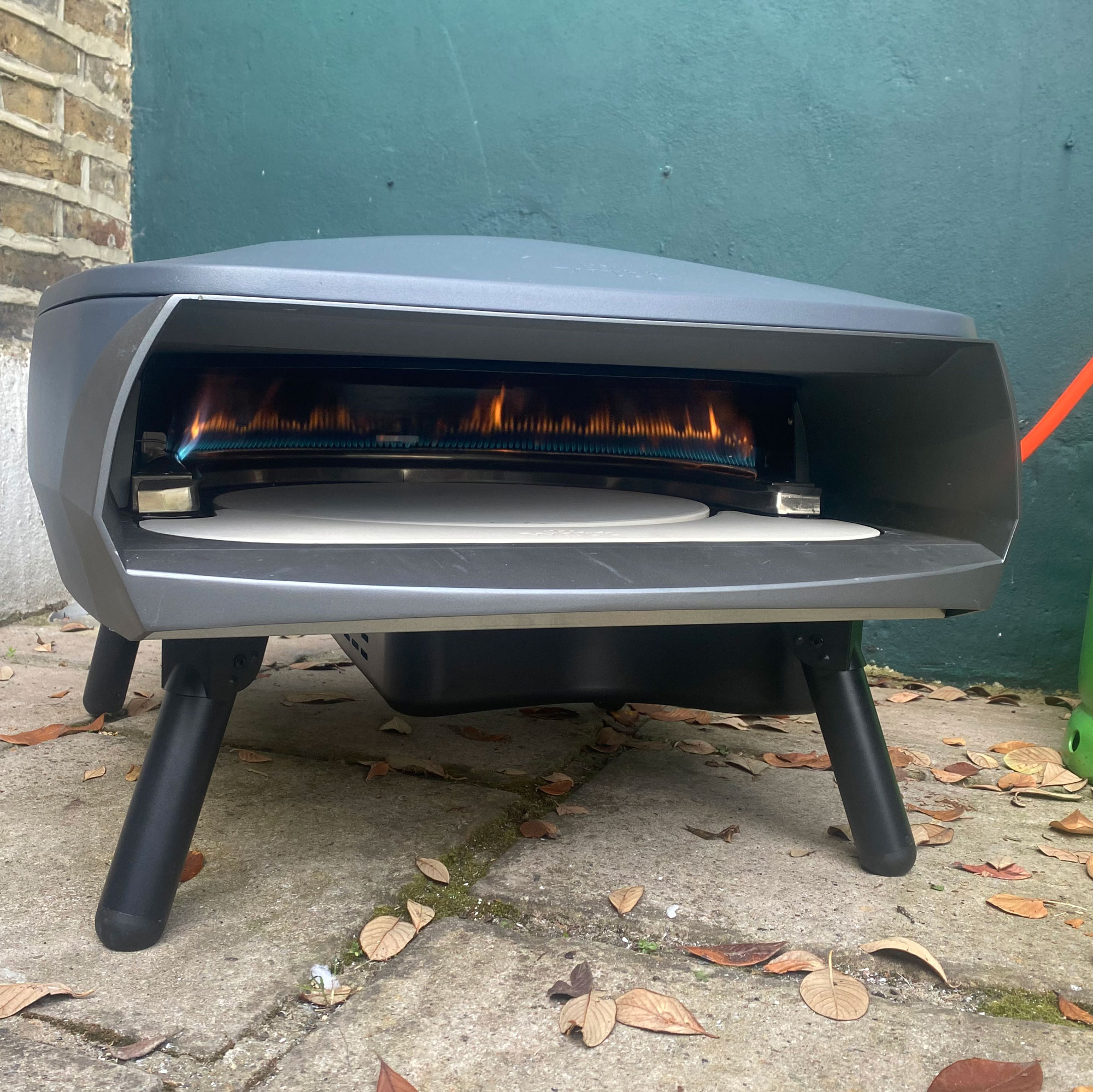
The Witt Rotante comes with a butane regulator. As I already had a propane canister at home that I use with my barbecues and wasn’t keen on shelling out another £100 for a new tank (nor having to store both at home), a quick trip out for a Blooma Propane gas regulator from B&Q allowed me to switch to using propane instead.
Once you connect the Rotante to your gas canister, it’s a cinch to light. Click the ignition and turn the gas on and you’re up and running. It also has a second burner - the booster burner - which sits under the stone, which you will have to light, too. It’s easy to see if the U-shaped main burner is lit.
The booster burner, as it’s under the stone - isn’t as obvious but there’s a small hole in the side beside the There’s a small peep hole to the right of the control buttons that you can peer into to see if the flame has taken. Finally switch the rotating base button on so the stone starts to slowly spin. Again, all pretty effortless so far.
Next, you need to wait for it to heat up. Witt claims that the oven is ready to use (from 0°- 500°C) in 15 minutes. As with all pizza ovens, this really all depends on the ambient temperature - the colder it is outside, the longer it’ll take to heat up.
On first use I left the oven for around 20 minutes to heat up. As the Rotante doesn’t have an integrated temperature gauge and I didn’t have an infrared thermometer (the gun-shaped ‘point and read’ ones) there was some element of guesswork on my part but waiting the extra five minutes worked a treat.
Making pizza
Pizza dough is really easy to make at home and it's super affordable, too. All you need is Tipo 00 flour, dry yeast, olive oil and a pinch of salt. As we’re a family of three, I tend to only make pizza dough from scratch when having friends over. Thankfully, pizza ovens are so popular these days that it’s now pretty easy to buy ready-made fresh or frozen dough from a whole raft of retailers. I totally rate The Northern Dough Co’s frozen pizza dough from Ocado. Keep it in the freezer and defrost if in the fridge on the day you’re making the pizza. Easy peasy.
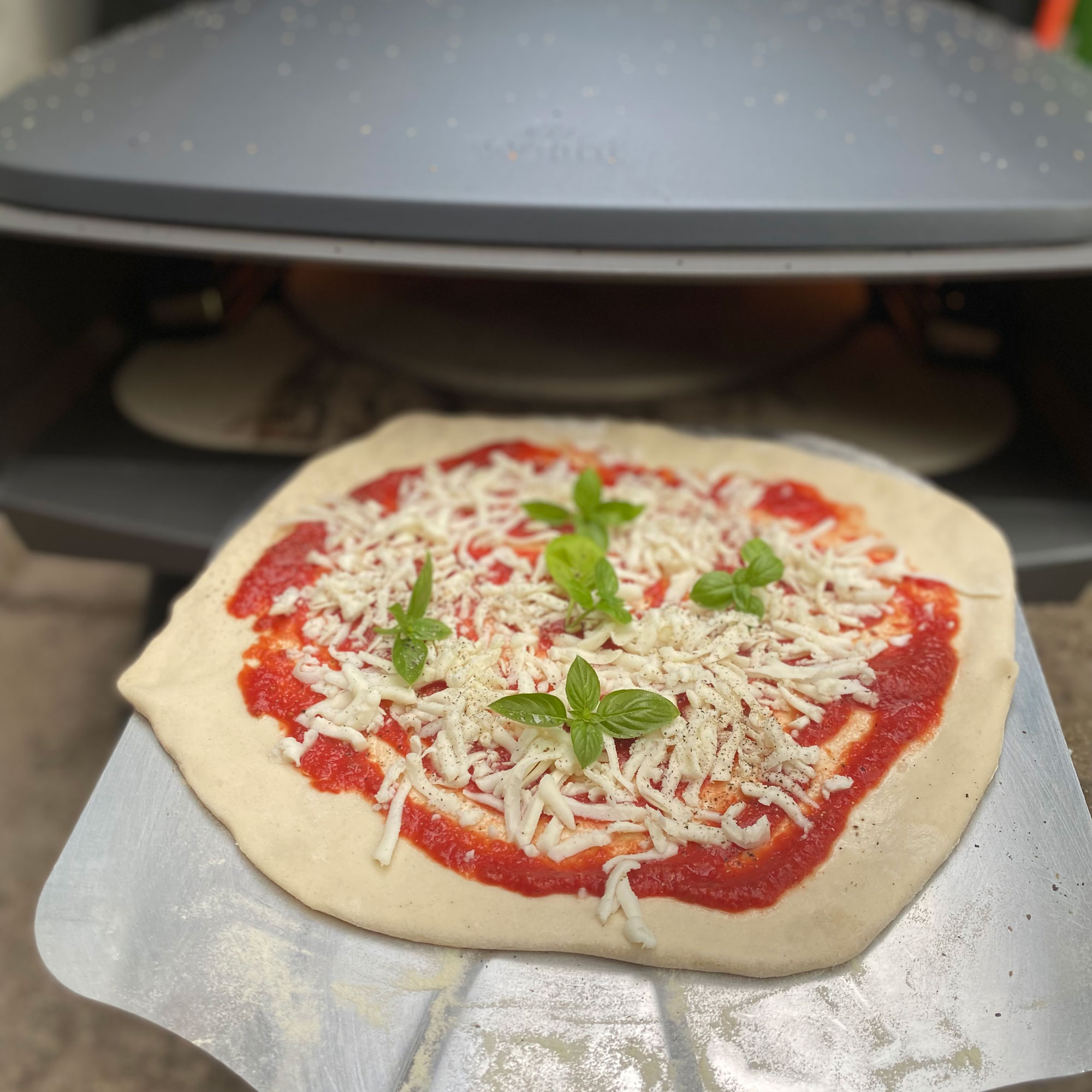
Once I spun my pizza dough out into shape, topped it with sauce, grated mozzarella and some fennel salami that I brought home from a recent trip to Florence, I dusted my trusty John Lewis pizza peel with a little semolina and popped the pizza into the centre of the oven and watched.
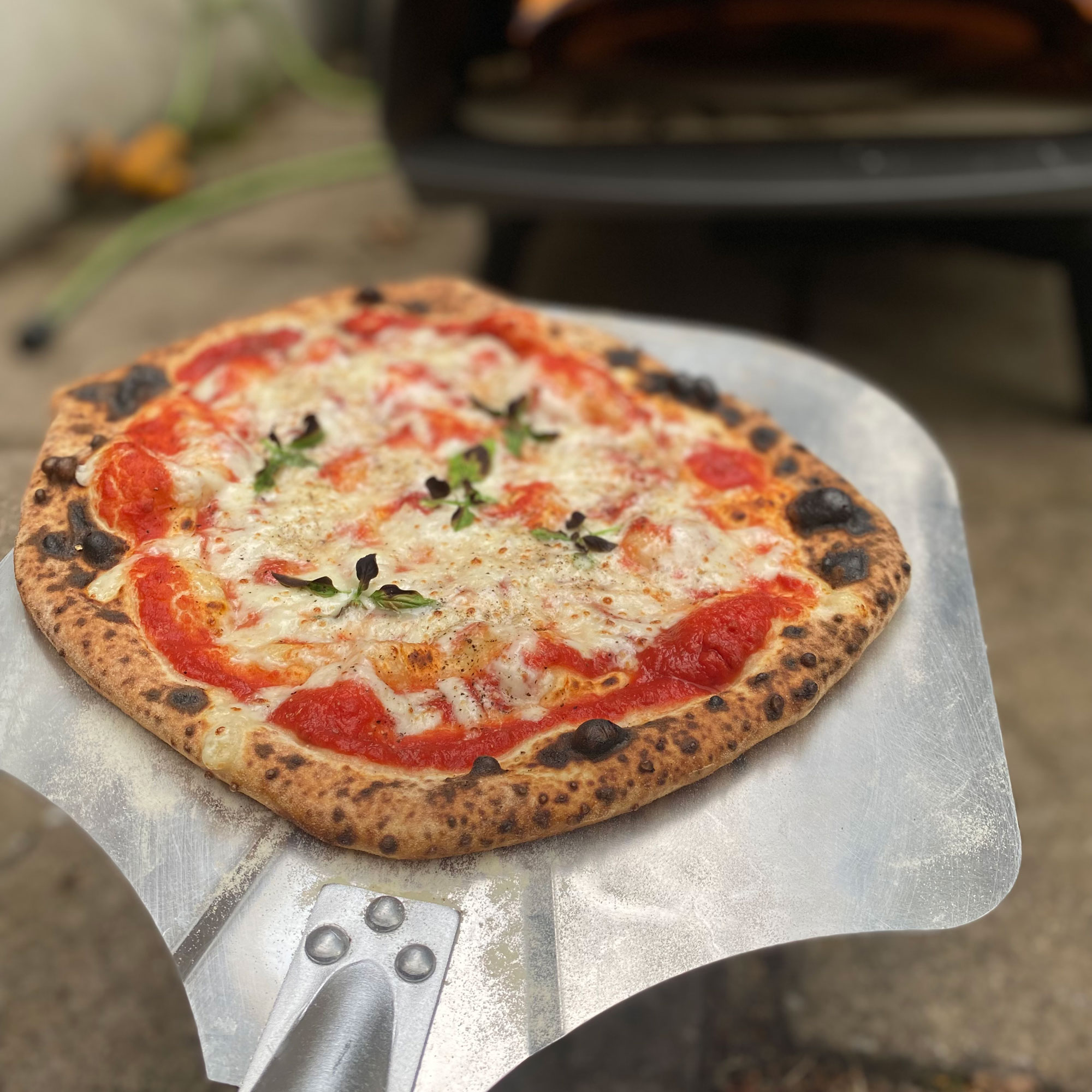
Much like making pancakes, the first pizza in a batch tends to be hit and miss. It comes out too thick/burnt/undercooked… or all of the above. Not this time. Watching the Rotante slowly spin around with the pizza inside was quite relaxing. There was no panic, no fear of it overcooking on one side - but again, make sure you place your pizza in the centre.
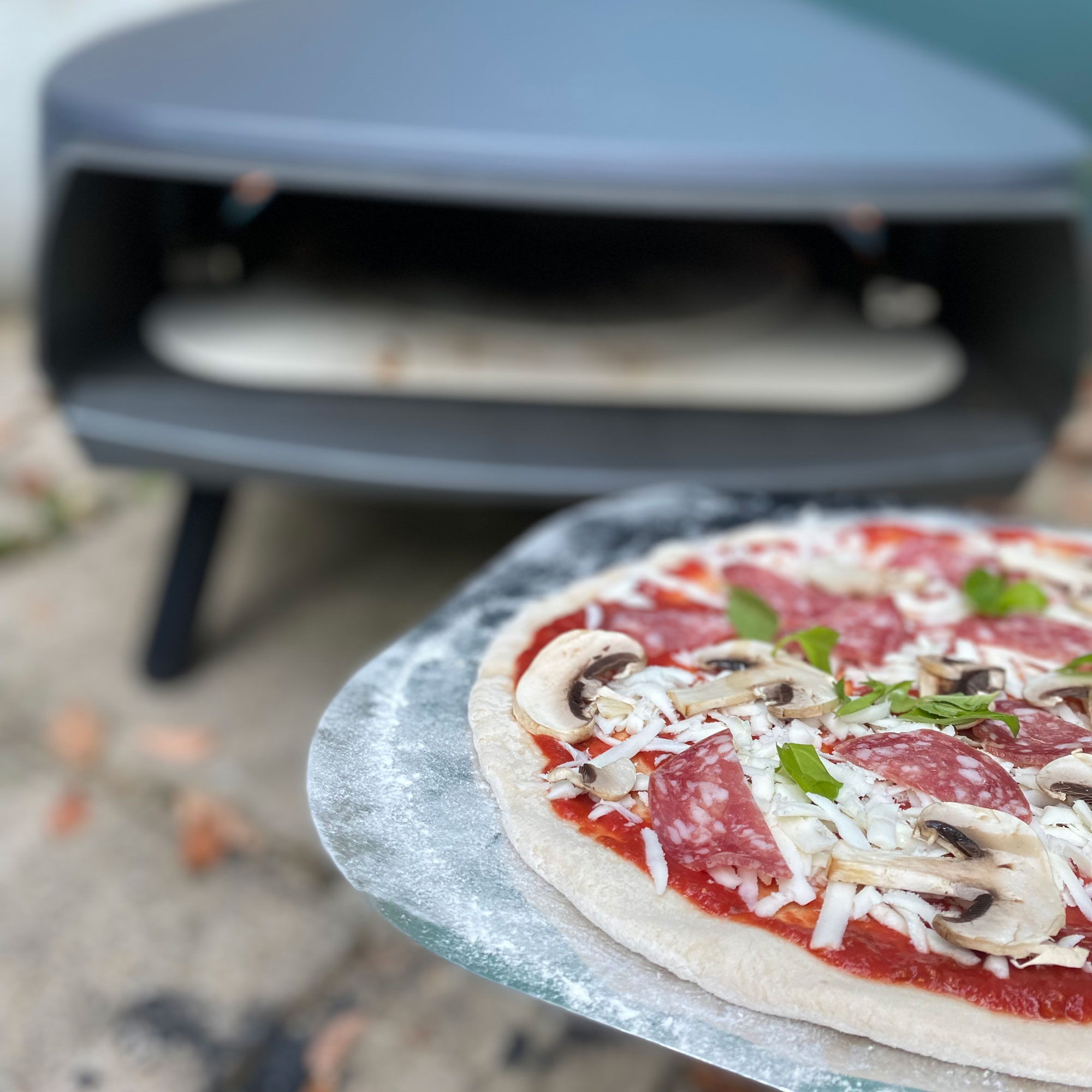
It cooks the pizza very quickly - Witt says it takes a minute and a half, I would say a minute was plenty. Once done, I fished it out with my peel and it was perfect. Crisp base, gooey cheese - top marks.
It turns out this left me feeling a little cocky, so much so that I completely ruined my second pizza by taking it out too quickly and it split in half, dredging cheese and undercooked dough all over the stone.
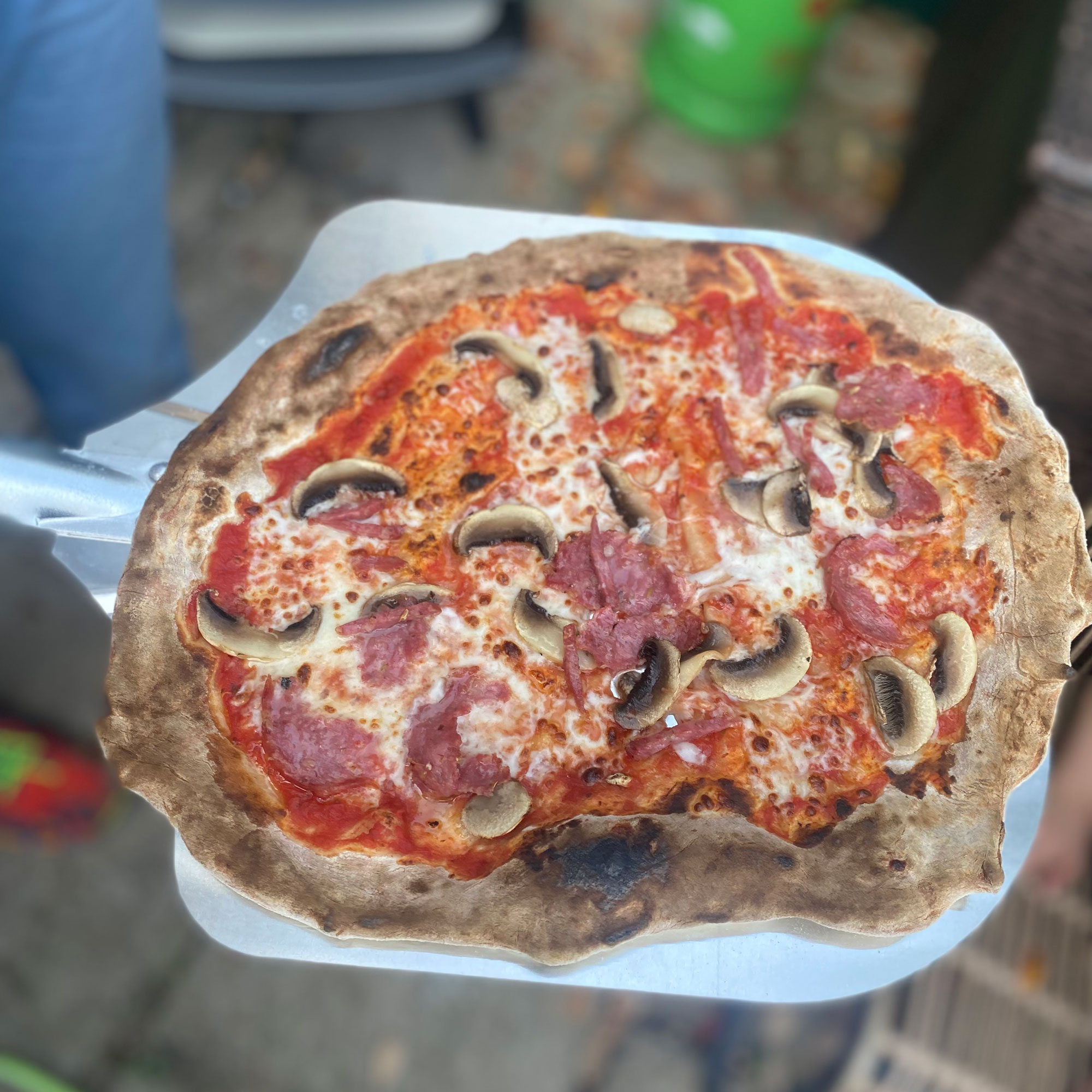
Aside from losing the pizza, the mess all burnt off quickly, such is the astronomically high heat that it generates inside, so it was soon ready for another pizza. And from there onwards, the Rotante produced flawless pizzas.
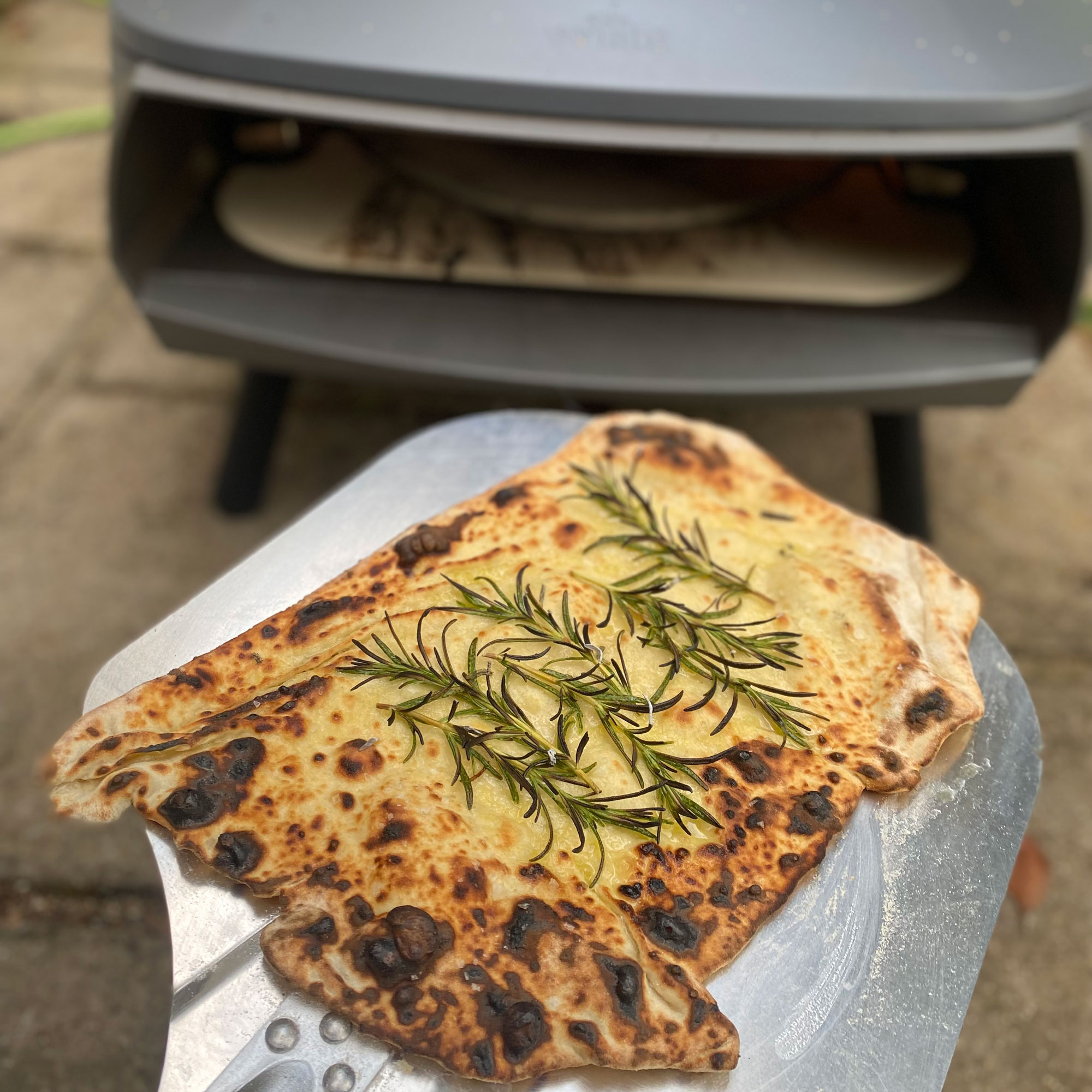
While it is big enough to accommodate 16 inch pizzas, I tend to make smaller ones - they’re easier to handle and therefore harder to mess up. You could, at a push, squeeze two small pizzas in the oven at one time, but given that it only takes a pizza a little over a minute to cook, it’s far easier to just stick to one at a time.
Cooking other foods
Pizza ovens aren’t just for pizzas. With a heavy duty cast iron skillet, pan or casserole dish, you can cook a whole load of other dishes, provided they’re quick cook meals and can handle the intense heat. I already had a cast iron pan at home so I used this to cook some lamb cutlets.
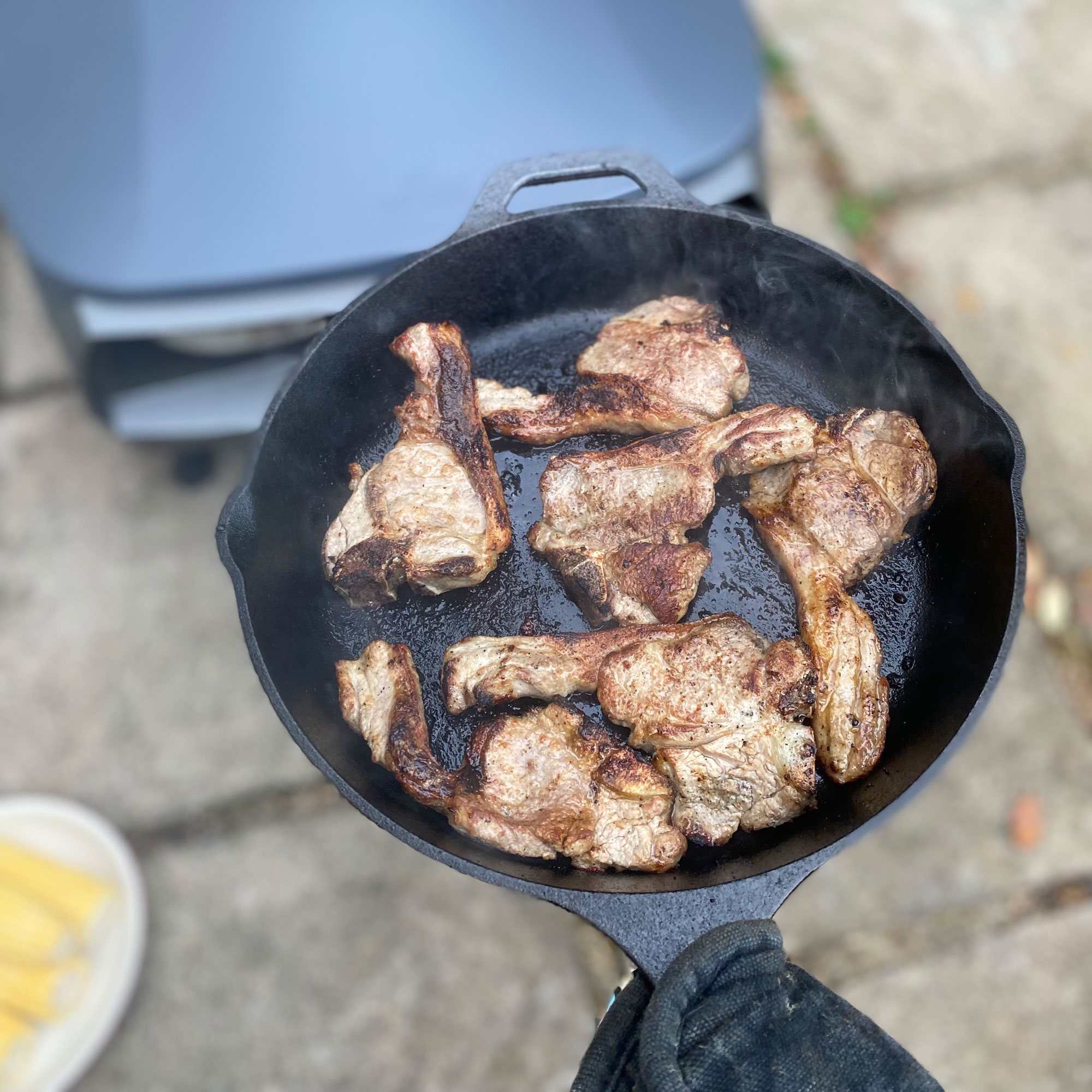
I preheated the pan first - my pan has a handle which protrudes out too far to allow the spinning base to rotate comfortably so I turned the spin function off. Once piping hot, I removed the pan from the oven with my double layered oven gloved hand, added the lamb to the pan and put it back in the oven again.
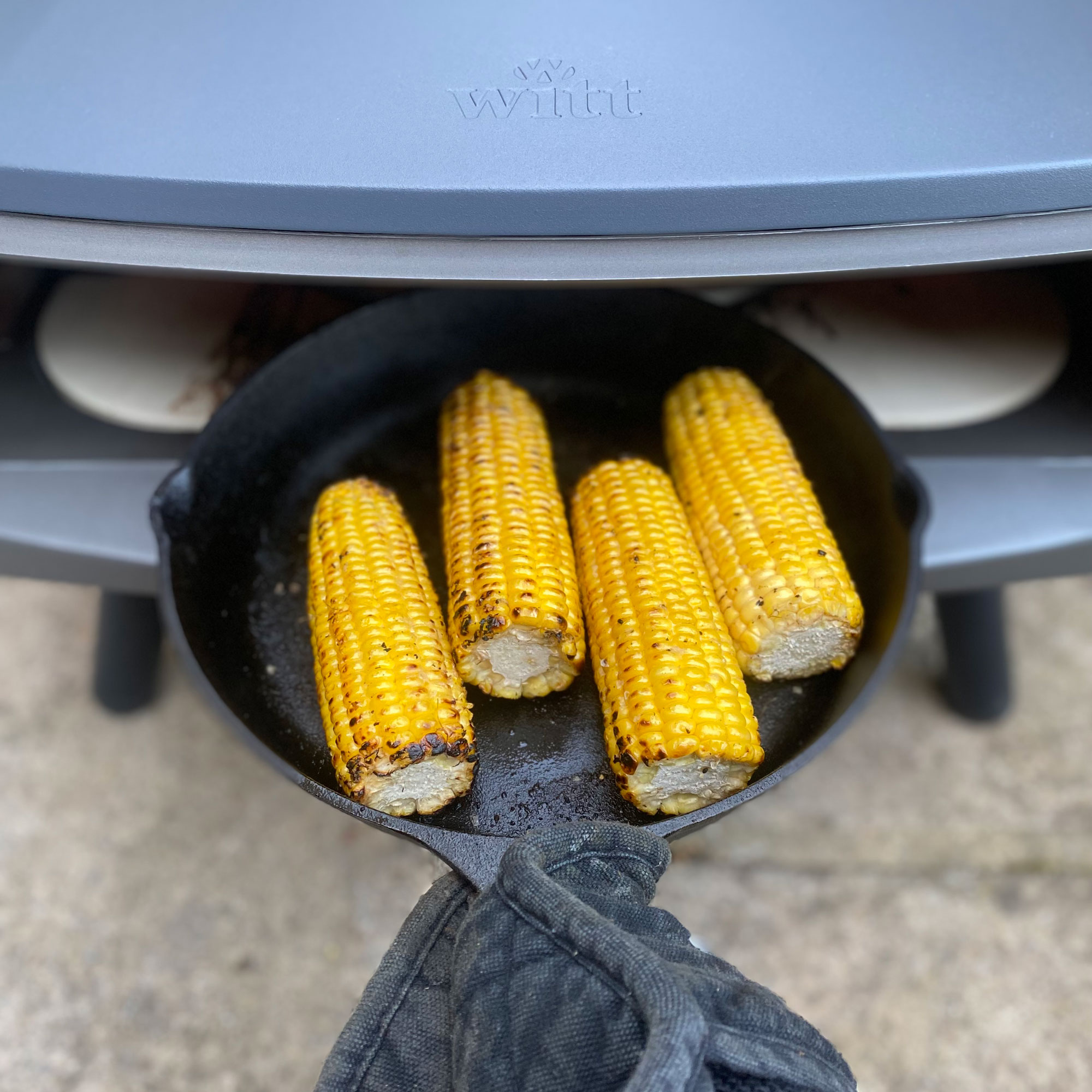
After just four minutes, the lamb was cooked, charred perfectly on the outside, and cooked just right on the inside (they weren’t thickly cut). I placed them on a warmed plate to rest, gave the pan a quick wipe with some kitchen paper and added some corn on the cob (lightly oiled and salted).
Again, these cooked quickly and brilliantly and once removed and brushed with soft butter, were delicious.
I plan to cook some prawns on it next as I figure they’d work a treat, plus broccoli or courgette are bound to come out charred and super tasty, too.
Cleaning and packing away
As already mentioned, the high temperatures mean that any cleaning is taken care of by the oven itself. Any residual food left on the stone will burn to ash. Having said that, this does leave black marks on the white stone, which isn’t pretty, but consider these your battle scars.
If you really must clean it, remove the stone only when it has fully cooled, and wipe with water. Don’t use any detergent as this will leave a residue on the surface. You can clean the rest of the oven with a damp cloth and some mild soapy water.
To pack it away, to simply detach it from the gas canister, fold the legs inwards and store in a shed or garage. Make sure to remove the two pizza stones (the main stone and the banana shaped front lip) before moving it as the oven is seriously heavy and they could dislodge and break when you move it from one place to another.
How does it compare to other ovens?
As mentioned, I bought my Ooni seven years ago - it was one of the brand’s first models (and no longer available) and it’s quite basic compared to the pizza ovens available today, but it still does the job well. Our top pizza oven pick overall is the Ooni Fyra, which is stripped back but pretty much perfect.
Comparing the Witt Rotante to that, as well my experience having tested the dual fuel Gozney Dome and wood-fired DeliVita ovens such as the DeliVita Outdoor Pizza Oven, the Witt Rotante is far less faff.
As the Rotante is gas powered, you don’t need to worry about lighting a fire from scratch and thanks to the rotating base, you don’t have to turn your pizza mid cook either. It’s altogether a lot (dare I say it) easier!
Should you buy the Witt Rotante pizza oven?
If you like the idea of pizza on tap in your back garden with the minimum of effort, then the Witt Rotante is absolutely the best pizza oven for you. It’s not cheap, but that’s mainly because of its size.
Other pizza ovens on the market that can cook 16 inch pizzas include the Ooni Koda gas oven (£499) and Ooni Karu multi-fuel (£699) and the Gozney Dome (from £1,499) so the Rotante may not be most affordable model, but it has the added bonus of the rotating base which - in my opinion - sets it apart from the cheaper Ooni model.
About the review and the reviewer
This pizza oven was sent to Ginevra free of charge by Witt. They let her keep the oven for prolonged testing which she carried out between March and June 2023. She has been allowed to keep it in order to update the review over time.







